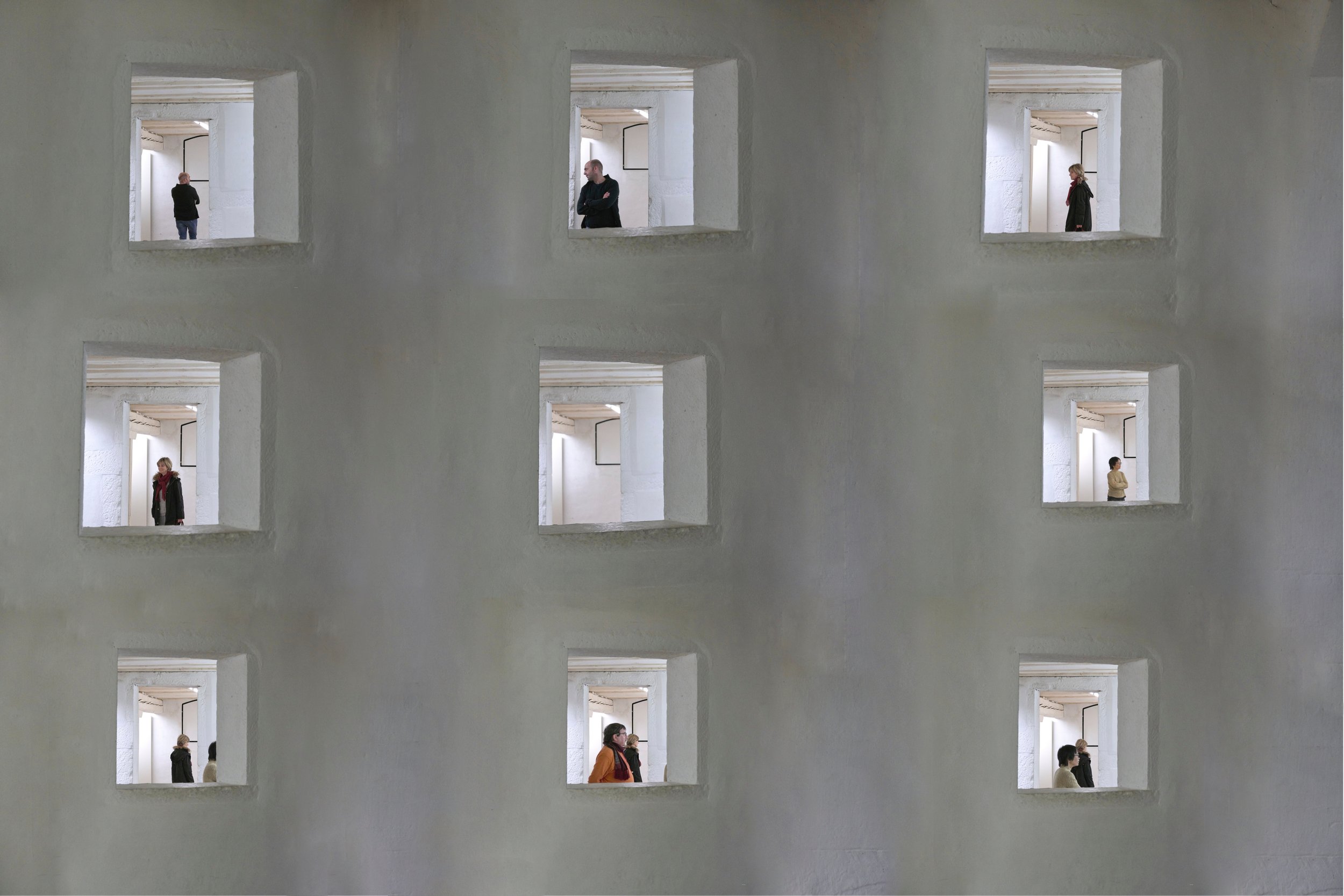We know these times are traumatising us. But work through it together, and our democratic aspirations raise up
Photo by Xavier von Erlach on Unsplash
Through our co-initiator Indra Adnan’s work with the Institut für Integrale Studien (IFIS) in Freiburg, we’re in contact with psychologically-literate forms of political experiment. The following report, co-created with IFIS, Pocket Project and Mehr Demockratie, is titled Overcoming polarization in crises: A research project on trauma and democracy.
Conducted with 350 citizens, it lays out some robust findings (and exciting methods) for deepening our democratic spirit, in stressful times—by embracing and working through the trauma of our response to a crisis-laden world.
With some light-editing, for readers beyond their academic context, we reproduce their synopsis below:
Democracy is coming under increasing pressure. Climate crisis, the loss of biodiversity, and not least the corona pandemic have led to great uncertainty and dynamics of division at many levels, in private and social life.
The war events in Ukraine contribute to further excessive demands and emotional shock, as well as distrust in politics. In order to better understand the principles of social polarization and to find starting points for overcoming them, our research project “Overcoming Polarization in Crises” was initiated.
It aims to capture unconscious, collective dynamics. And the guiding question was:
Can understanding and dealing more consciously with collective trauma dynamics help to strengthen our democracy and overcome polarization?
How did this initial question emerge? Through considering that in increasingly complex social situations. the development and negotiation of meaning and meaningfulness is an essential feature of political processes and decision-making.
At the same time, crises can act as catalysts of fragmentation. As they evoke unprocessed traumatic material, stored in collective memory, unprocessed experiences and associated emotions get activated, triggering unconscious dynamics.
As a result, individual and collective sense-making is disrupted. The decisive factor is how unconscious (often also transgenerational) contents of the collective memory can be reconnected and related.
According to sociologist Hartmut Rosa, resonance is central to this. His “sociology of relationships in the world” theoretically links resonance capacity, democracy and trauma.
Resonance capacity is based on openness to share even contradictory and challenging contexts of meaning, not to repress them. Collective practices of remembering, which also take into account emotions such as disquiet, fear, mistrust and grief, are very importance here.
Against this background, the core of the research project was a three-day so-called trauma-informed large group process in which more than 350 citizens participated online.
The group process served to jointly explore the experience of current crises, democracy and polarization as well as individual and collective traumas. The focus was on conscious awareness of personal, emotional, cognitive and physical processes as well as the relationship to others and to the group as a whole.
Photo by Jilbert Ebrahimi on Unsplash
An essential learning moment was the establishment of a “meta-communication”, i.e. a communication in the here and now about the ongoing events, by means of which contents and dynamics that are usually unconscious can be reflected on together. The process of witnessing, in the sense of recognizing and acknowledging personal or collective realities, was another core element.
The theoretical basis of the research project links different approaches, including those from political science, sociology, psychology and trauma research. “Sense-making“ (or “Sinnbildung” or also “Sinngebung” in German) functions as a connecting key concept, which can be found in all the disciplines mentioned and thus enables a bridging function.
The concept of sensemaking was introduced by Weick in the 1970s to investigate and better understand the complex dynamics in organizations and other social systems.
Sensemaking is the process that enables people to make sense of the multitude of sensory impressions in the stream of experience, to orient themselves within it, and also to communicate it in retrospect through a structured narrative. How people make sense of their lives and the world can be seen in the stories, the many little anecdotes and narratives, they share in everyday life.
In the form of short stories (micro-stories), the participants in the research project were able to describe and evaluate their personal experience of democracy in the current political and social situation. For entering and rating the stories, the participants used a special software (called SenseMaker by Cognitive Edge).
The total of 643 short stories, additional data from participatory observation as well as from focus groups before and after the large group process, provided a rich, complementary data base….The objective here was to gain a deeper understanding of the intersections of sensemaking, crises and social polarization as well as collective trauma.
The findings are subject to certain limitations. They are not readily generalizable or transferable to the population as a whole, but require contextualization for this purpose. Nor is this impact research in the narrower sense of rigorously proving cause-and-effect causalities.
Rather, the research project makes a fundamental contribution to the elaboration of patterns, trends and interrelationships in the complex assemblage of trauma, crisis and democracy. It is thus a pioneering piece of academic work that encourages further research into mentioned interrelationships.
The evaluation of the micro-stories shows that the participants’ relationship to the lived practice of democracy changed within the framework of the group process.
While the stories at the beginning of the process express a good deal of distance and disenchantment with politics, the stories at the end of the process demonstrate a clearly strengthened confidence in one’s own ability to act as well as new courage to actively engage in a renewal of democratic practice.
Abstract systems such as politics, participation, democracy, society were experienced by the participants as more manageable, accessible and lively in the course of the group process;
This observation is complemented by the insights from the focus groups and the participatory observation. A comparative analysis of the focus groups shows that participants tended to describe numerous additional qualities and competencies as important for dealing democratically with multiple crises, after the large group process….
Our participant-observations allow us to say that that topics previously experienced as “frozen”, difficult or highly emotional becamemore accessible and workable in the group process. This process seems to enable many participants to be in deeper resonance with their own experience and the experience of others, with regard to massive crises and past traumatic experiences…
Photo by Papaioannou Kostas on Unsplash
The following trends can be identified at the interface of collective trauma dynamics, democracy and polarization. The overall picture that emerges justifies the impression that the trauma-informed large group process can counteract tendencies towards polarisation:
Trend 1: Within the group process, a more conscious perception and a new understanding of the many and complex links between personal injuries, collective memory contents and present crises experiences emerge.
Trend 2: Within the large group process, the participants’ sense-making and meaning-making change in such a way that they express more commitment, motivation and responsibility in the context of democracy.
Trend 3: Participants experience themselves as having a powerful voice and effect when the polyphony of democracy is not just cognitively experienced, but emotionally and in an embodied way. Democracy then transforms from being a “thing out there”, into an internalized and resonant experience.
Trend 4: The lived experience of resonance enables a dynamic and connected approach to polarization and conflict. Differences and differing opinions can be better included and contained, out of which new, related and appropriate response possibilities arise.
Overall, the results of the research indicate that new formats of democratic practice are necessary in order to sustainably counter the effects of multiple and dynamic crises.
The stresses and uncertainties to which citizens are exposed in the face of crises require social spaces in which communicative sense-making and understanding can take place.
The trauma-informed large group process and the use of the SenseMaker represent a promising possibility: making the voices of citizens audible and representable. This can help to strengthen social dialogue and to overcome or at least mitigate polarization through the joint creation of meaning.
They point to the possibility of a new kind of politics and a new quality of democracy. Going beyond the process we’ve analyzed here, subsequent conclusions can be drawn:
Feelings of division and experiences of separation among citizens should be actively addressed, both individually and socially. This is about strengthening political and social trust, social cohesion and the willingness to play a part in shaping society.
A trauma-sensitive perspective offers the possibility to become more aware of deeper personal and collective dynamics, and intergenerational aspects, in democratic processes of understanding. Also to increase the relatedness and compassion of those involved.
In order to meet the need for opportunities for participation and greater responsiveness, accessible social spaces are needed. Here’s people can come closer to each other through “relationship work” and democracy can be experienced in a concrete and living way.
The trauma-informed large group process and the use of the SenseMaker is a promising way to make diversity mappable and tangible and thus enable a shared creation of meaning. If the ability to engage in societal dialogue, including on critical issues, can be increased, then polarization can be overcome, or at least mitigated.
We should implement a model of trauma-informed processes on different political levels (such as the municipal level or in connection with instruments of deliberative and direct democracy). This would be a central next step, in order to explore societal discourses on specific, politically sensitive topics and to work on them together with citizens.
Research into (semi-)public trauma-informed processes, their impact and context-dependency, is necessary. We need to better understand them within the scope of democractic work, applying them in practice in a goal-oriented manner.
Ultimately, if we further strengthen the ability to resonate—and the willingness to responsibly confront present and future crises—this will be indispensable for the future of a vibrant democracy…




